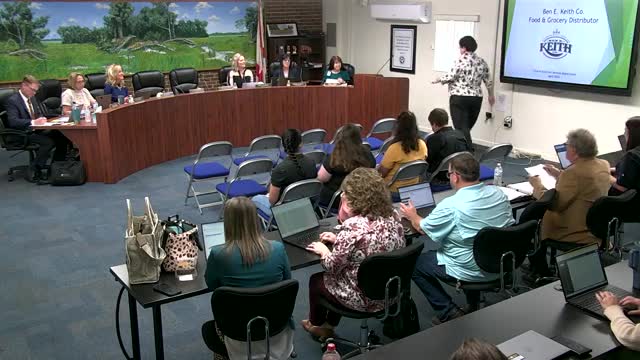Article not found
This article is no longer available. But don't worry—we've gathered other articles that discuss the same topic.
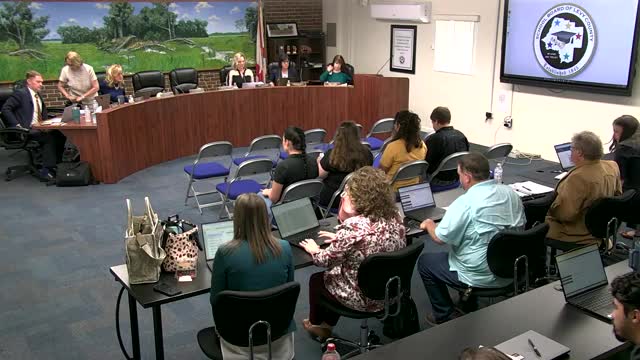
Board approves routine agenda, minutes, consent agenda and finance items
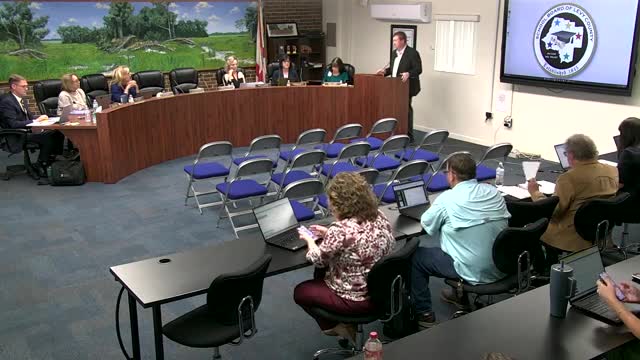
Board authorizes advertisement of multiple policy updates tied to state and federal rules
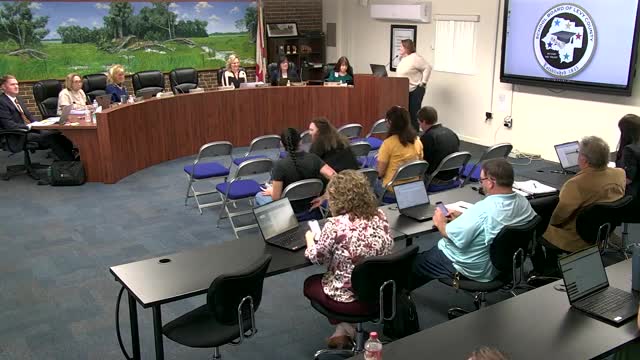
Board adopts K–12 English language arts and high‑school personal finance materials
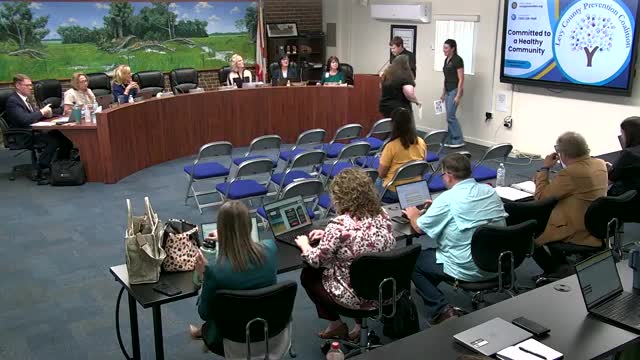
Levy County Prevention Coalition outlines after‑school, mentoring and prevention programs; reports enrollment and funding challenges
